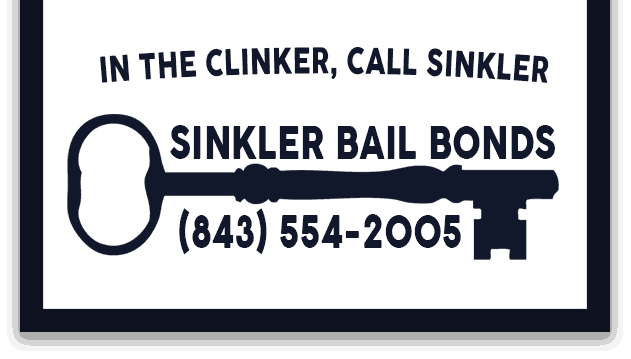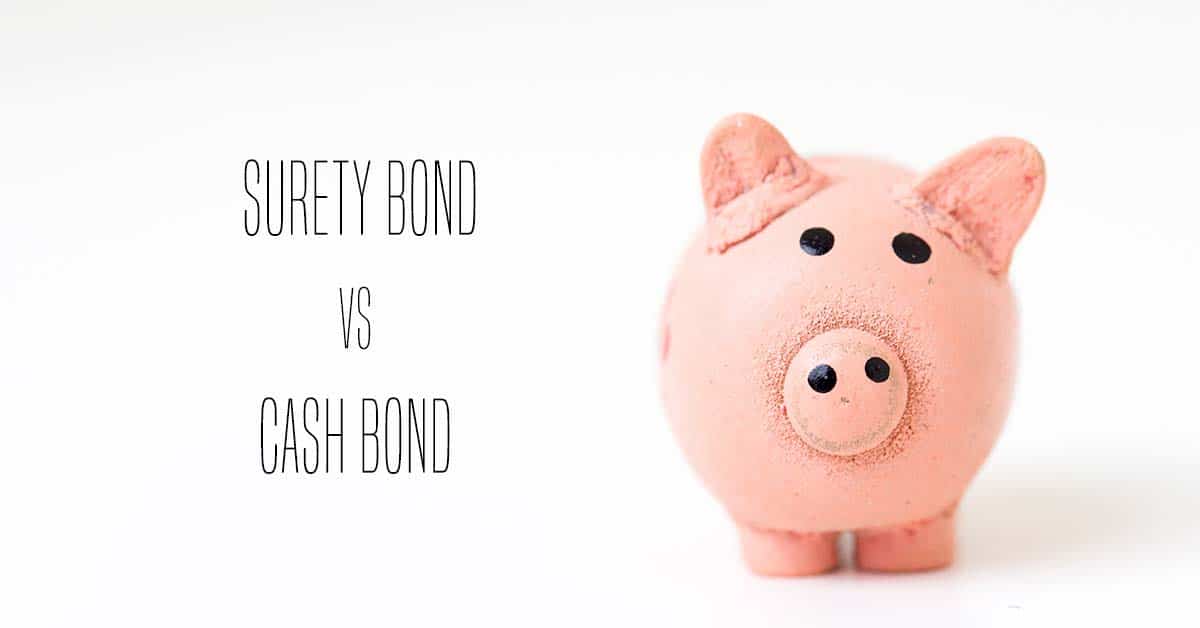24-Hour Bail Bonds – Anytime, Any Jail – Serving all of SC
Call us now at (843) 554-2005
24-Hour Bail Bonds – Anytime, Any Jail – Serving all of SC
Call us now at (843) 554-2005
CHARLESTON | COLUMBIA | AIKEN | NEWBERRY | GREENVILLE
CHARLESTON | COLUMBIA | AIKEN | NEWBERRY | GREENVILLE

Surety Bond vs. Cash Bond: What’s the difference?

If you’ve done some searching online for bail bond information then you’ve might have come across the terms surety bond and cash bond. While you can use both to post bail and release someone from jail they function in different ways.
What are the differences between a surety bond and a cash bond? How are they similar? We’ll cover both of those questions in this article.
Put your money where your mouth is
When you post bail what you are doing is saying:
“If you release me now I guarantee that I will show up for my court date. If I don’t show up you can keep my money.”
Both surety bonds and cash bonds are used as a guarantee that you will show up for court. This means that both will get you out of jail once your bail amount has been set. The key differences between the two who pays the money and who takes the risk. To illustrate the difference let’s define each and then break down the two main differences.
What is a cash bond?
A cash bond is cash held as a guarantee of payment. When you bail someone out of jail the easiest option is to post the full amount in cash.
If you post bail with cash the bond court holds the full amount to ensure you show up for your court date. Cash is the guarantee of payment and it is very cut and dry. If you don’t show up for court they keep your cash. If you show up – meaning you don’t owe any money – the court returns your cash. You won’t need to worry about any other paperwork or calculations.
What is a surety bond?
A surety bond is a little more complicated. The U.S. Small Business Administration defines a surety bond as the following:
“A surety bond ensures contract completion in the event of contractor default. A project owner (called an obligee) seeks a contractor (called a principal) to fulfill a contract. The contractor obtains a surety bond from a surety company.”
Let’s translate that into something we can work with:
A surety bond is a loan you receive to post bail. In the case of surety bond the contractor is a bail bondsman. The bail bondsman meets with you and agrees to post bail for you. The bail bondsman then contacts the surety company they work with to borrow the cash to post your bail.
Who’s buying?
In the case of a cash bond either the person arrested or a friend or family member pay the full bond amount in cash. If the defendant shows up for their court date the court returns the full cash amount. No one loses any money.
A surety bond has more parties involved and is a little more complicated. When you hire a bail bondsman to post bail you pay the bail bondsman a non-refundable premium. This is typically 10% of the full bail amount.
In exchange for this 10% the bail bondsman posts the full amount of your bail. They don’t post the full amount out of their own pocket though. Instead they borrow the bail amount from a surety company.
Who is at risk?
The risk with bail always starts with the risk that the defendant doesn’t show up for their court date. If they show up for their court date no one loses money. If the defendant doesn’t show up to court parties lose money because the bond court keeps the full bail amount.
With a cash bond the person who posts the full bail amount takes 100% of the risk. If the defendant posts bail on their own then they assume the risk. While that is possible, it is unlikely.
The more common situation is that a friend or family member posts the cash bond for the defendant. In this case the friend or family member takes on 100% of the risk for the defendant. They are now financially responsible for the defendant showing up for court.
A surety bond spreads the risk out between the three parties involved. In exchange for the 10% bail premium the bondsman agrees to be responsible for 100% of the bail amount.
To offset some of this risk a bail bondsman will usually need you to use some form of personal property as collateral as well. By using personal property as collateral you risk losing that personal property.
Where does the surety company come in? The risk for the surety company is lower than for the bail bondsman but there is still risk. The surety company loans the bail bondsman the full bond amount. This means they are risking losing the full amount as well. The risk for the surety company is lower because a bail bondsman’s business is dependent on the surety company. The two have a history of working together.
Conclusion: The difference is who pays and who takes the risk
Posting bail is a financial promise to the bond court that you will show up for you court date if they release you. Both cash bonds and a surety bonds are used to post bail and get the defendant out of jail.
The differences between a cash bond and a surety bond are:
- the person posting the bail
- the person who is at risk to lose the money
If you post the full bail amount in cash (a cash bond) whoever posts bail assumes 100% of the risk. Hiring a bail bondsman to post bail for you (surety bond) spreads the risk out between the client, the bail bondsman, and the surety company.
Both of these bail bond types have their advantages and disadvantages. Inform yourself and make an educated decision when bailing someone out of jail. If you have any questions you can call us 24 hours a day. We will be happy to explain the differences between a surety bond and a cash bond further.

